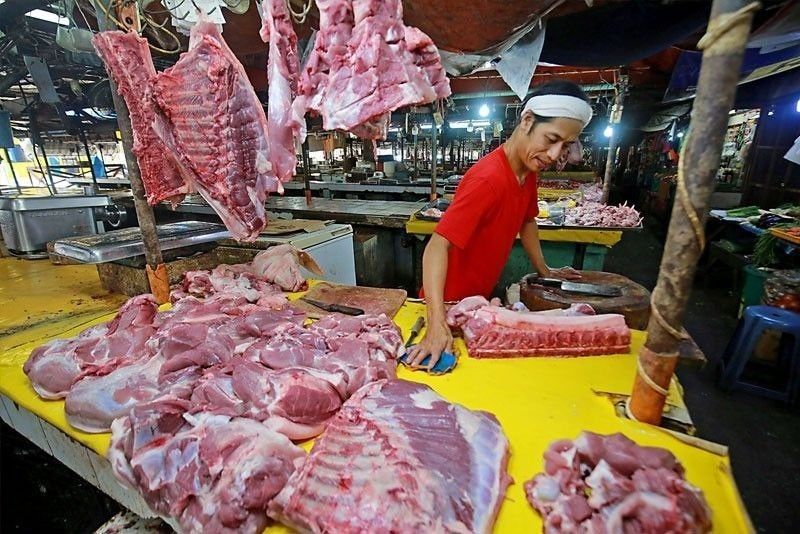Lawmaker says P1.3 billion pork tariff losses could have gone to farmers, fight vs ASF

MANILA, Philippines — The P1.3-billion foregone revenue from imported pork tariff could have gone to fighting the African swine fever (ASF) and helping small farmers and entrepreneurs, according to a lawmaker.
Sen. Francis Pangilinan said the lost revenue was reported from April 9 to June 11 as the country imported at least 76 million kilos of pork under lower tariff on both in-quota and out-quota imports of swine meat.
The policy is contained in Executive Order 134 issued last May, which charges 10 percent for the first three months and 15 percent in the succeeding nine months imports within the minimum access volume (MAV). Those outside the MAV are slapped 20 and 25 percent, respectively, for the first three and succeeding nine months.
“Until now, the prices of pork remain high at P380 per kilo for liempo alone. It depends on how we address the ASF problem,” said Pangilinan, who filed Senate Bill 2176 which seeks to create a Swine Competitiveness Enhancement Fund from pork import tariffs.
He reiterated his earlier position that slashing tariff was not the best solution since it undermines the local pork industry and deprives the government of needed earnings.
“What’s tragic here is when you ask around, no Filipino consumer – whether those who shop in wet markets or supermarkets – will say that they felt the easing of pork prices. So who would benefit from this policy?” he asked.
“We warned from the start that such policy is never a win-win solution but a losing proposition to the government, the local industry and the consumers,” he said.
Officials said the lower tariff aims to arrest the spiraling pork prices due to the lack of supply as an effect of the ASF that decimated a big portion of the local swine industry.
But Pangilinan said consumers continue to complain of high pork prices, especially in wet markets.
With lower revenues, he said, the government would have less money to augment programs for the local hog raisers who badly need support to rise from the onslaught of ASF and be competitive against imported pork.
He said the Senate would continue to watch developments and review the policy of the government to make it more responsive to the local industry and consumers.
Malacañang earlier heeded Pangilinan’s call to declare a state of calamity to allow government to augment the funds of the Department of Agriculture for calamity relief and rehabilitation, as well as provide indemnity funds for hog farmers and additional funding for biosafety measures.
- Latest
- Trending



























